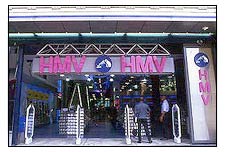LONDON: Britain received its first shipment of imported liquefied natural gas Monday as the country prepares to rely on imports with its North Sea fields increasingly drying up.
The first tanker, the Berge Arzew, carrying 138,000 cubic metres of LNG from Algerian state producer Sonatrach for British Petroleum, docked at a new import terminal at the Isle of Grain on the Thames Estuary. The gas will be pumped into National Grid Transco’s new LNG terminal.
Two more such terminals will be built — at Milford Haven in South Wales — by 2007 to handle LNG imports, mostly from Egypt and Qatar.
Britain, Europe’s largest gas market, had stopped importing LNG in the 1980s with the North Sea taking care of its entire gas needs. However, the dwindling yield from the fields has forced the country to look at oil gas producers in the Middle East.
It estimates that LNG will meet between 20 and 25 per cent of the country’s gas demand by 2008-2009. Currently it consumes around 100 billion cubic metres of gas a year.
Centrica, one of the gas suppliers, has bought huge capacity in the Isle of Grain expansion and it is negotiating with gas producers in north and west Africa and the Middle East.
Plans are also afoot to import gas via subsea pipelines. An existing pipeline connecting Belgium is getting expanded and two pipelines connecting Norway and the Netherlands are under construction.
Britain at one time had gas reserves ranked fourth in the world. The reserves were optimally exploited in the 1970s, but as the reserves fell and the cost of extraction and refining went up, the country, like other industrialised counterparts, has started relying on imports.
Oil experts predict that LNG will cater to 10 percent of global fuel needs by 2020.



 Bitcoin
Bitcoin  Ethereum
Ethereum  XRP
XRP  Tether
Tether  Solana
Solana  USDC
USDC  Cardano
Cardano  Lido Staked Ether
Lido Staked Ether  TRON
TRON  Avalanche
Avalanche  Toncoin
Toncoin